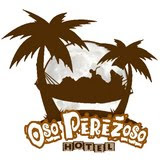DIY Backpacker Spa
>> November 10, 2010
By special request, here is blog devoted exclusively to a DIY Backpacker Spa.
Trekking the world in flip-flops with a unwieldy backpack that seems perpetually affixed to your body, a backpacking gal deserves a spa night as often as she can get one. Even though some international destinations have beauty treats for the budget-minded girls, these 'fine establishments' don't always give you that pleasant, anticipatory feeling....more like a sensation that makes you duck your head and rush by with great haste, ignoring the sing-song voices trying to lure you into certain discomfort and unease.
So, when you need a break from the dusty trail, try some of these easy, inexpensive, and easy-to-find spa ideas!
SUGAR SCRUB: take a tablespoon of sugar (unrefined works best) and place it in a dampened palm. Mix one drop of shampoo or liquid soap and a few drops of water and apply in circular motions to rough skin. Good for hands, feet, elbows, etc. Wonderful solution for peeling beach skin, overgrown cuticles, itchy feet, and general exfoliation purposes. Make sure you rinse well to avoid sticky skin. Licking off the sugar is a possibility but not recommended (remember the soap....).
JOJOBA OIL: A little bit of jojoba goes a looooong way. Add a few drops to the palm of your hand, rub hands together to warm, then apply to face, hands, legs, arms, anywhere! Jojoba is the closest thing to the composition of natural skin oil, so it's great for every part of your body. Also great for dry scalps and chapped lips. Great option for a hot oil treatment for hair: microwave a small amount and then apply to hair (especially to the ends). Let sit for 30 minutes, shampoo/condition as usual.
UMBRELLA SPA: Yearning for a sauna? You need look no further than the bathtub in your (hopefully more quaint than questionable) hostel room. Run the bath hot, hot, hot, then climb in. Open an umbrella above your head (the possibility of bad luck is SO worth the risk) and let the steam collect under it, enveloping your mind and head in soft, thick warmth. Settle back, smile, and ignore the other backpackers banging on the door.
TEA TREE OIL: A natural antiseptic, tea tree oil is a potent oil from Australia. A drop mixed with water makes a great face toner, killing bacteria and germs and backpacking grime build-up. Add a few drops to a small tub for soaking tired feet. In a hot bath, tea tree oil will help congestion and cough, invigorating your senses!
TEA BATH: No matter where you are, herbs and spices are sure to be found. Shop around for some local treats to add to bathtime! Favorites of mine were Jasmine Tea Bath in China, Dried Rose Bud Bath in Morocco, Mint Tea Bath in Egypt, Rosemary Bath in Italy, and Lavender Bath in France. Be a tea bag and soak for a while!
AVOCADO: Not just for guacamole anymore! As a certain friend might vividly remember, avocado is filled with nourishing oils and is just the ticket to soothing dry, parched skin (especially sunburns). Slather it on, let it sit, rinse. Try not to use soap, as it will strip away the lovely oils that have soaked into your skin. Serve nachos or burritos for dinner in a dimly-lit room and hope that your friends don't notice your funny smell or greenish tinge.
On the road or nestled at home, have a backpacker spa night!









.jpg)

